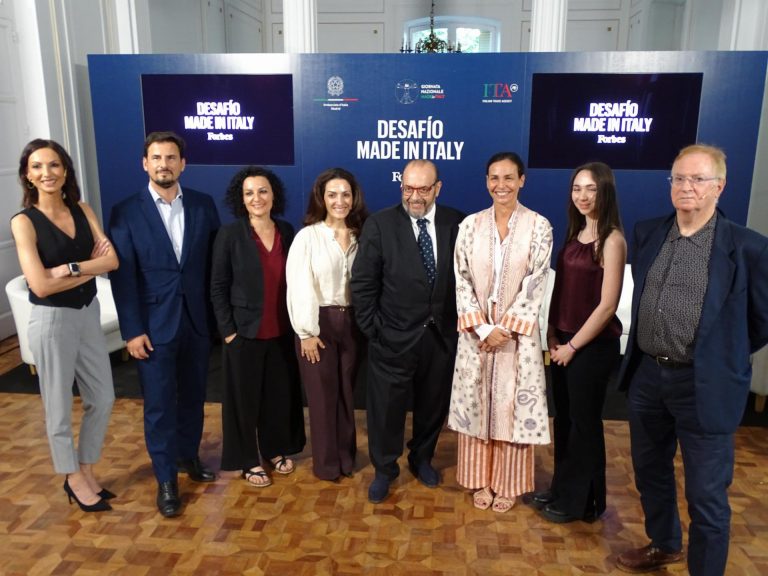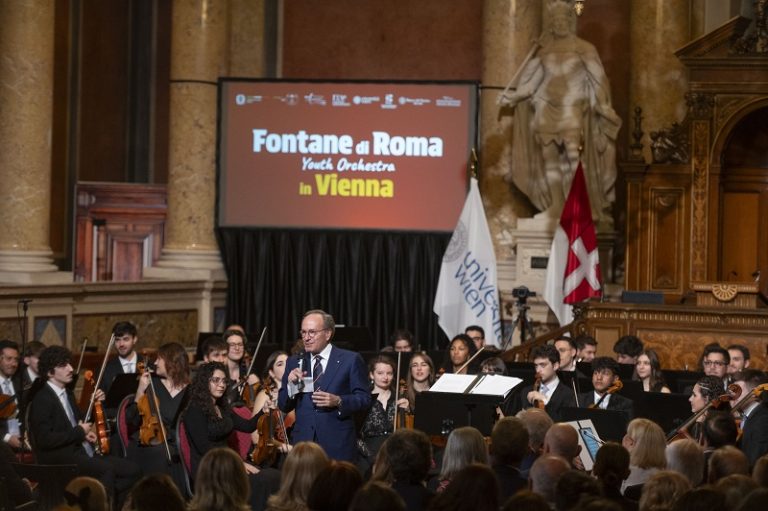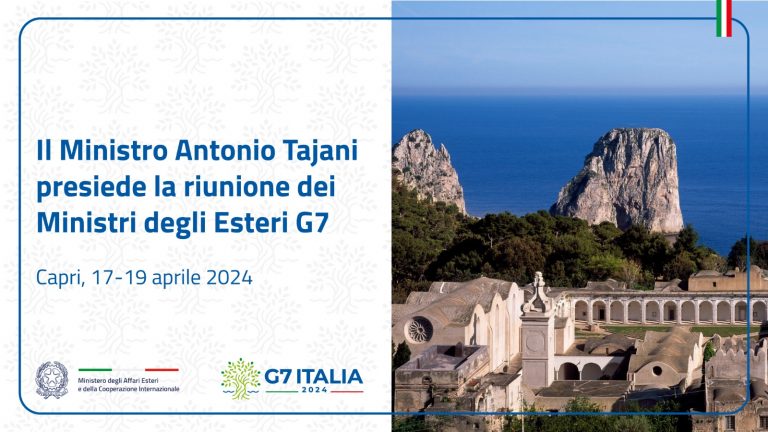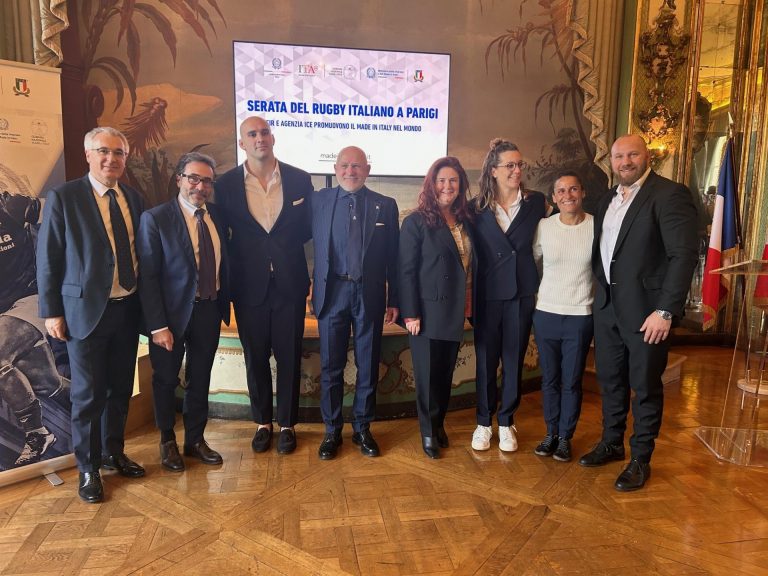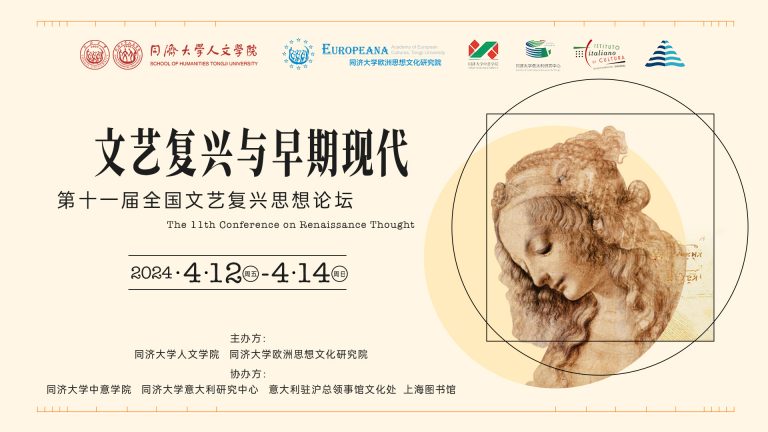(fa fede solo il testo effettivamente pronunciato)
To have a clear overview on the Syria crisis but also to fully understand obstacles and difficulties encountered by the International Community in finding a way out to a three years long conflict, there is a basic premise to take into consideration. In Syria, as well as in some other countries of the region, we are in front of some huge dynamics causing a profound shift in power balances within the Arab world. And it’s not only a matter of secular vs. fundamental religious forces, but of a double rupture. First within the Sunni family, and then between the Sunni and Shia. All this is having a dramatic impact on Syria and fuelling the tensions between the Shia and Sunni galaxies. It is a “battle” with no clear-cut frontlines because, for example, some countries which were (and are) divided on Egypt are joint together in supporting the Syrian opposition. It is a “battle” being fought on the diplomatic, propaganda/media fronts. It relies on a massive financial leverage which outweighs Europe’s one. Possibly America’s one. In few words, in Syria some major regional actors are playing their proxy war aimed at influencing the tide of the war. In a nutshell: in the Middle East we are still in the full of dramatic changes and the Syrian war the clearest evidence of this geopolitical clash.
These considerations on the regional nature of the Syrian conflict should not be an extenuating factor for the international community nor justify further delays in finding a credible way out. On the contrary, being Syria’s a proxy war we should encourage positive and responsible engagement of all regional players into the process, including countries that were not represented in Montreux meeting and which should be called upon to contribute constructively to the solution of the crisis. Iran’s involvement, at one given time will have to be taken into account. Tehran has to play a positive role starting from its acceptance of the basic parameters of the negotiating process (the Geneva communiqué)
Despite difficulties encountered, the convening of the Montreux conference and the intra Syrian negotiations in Geneva are an important step in view of a political solution to the Syrian conflict, to which there is no alternative.
We should not underestimate those achievements as they were not taken for granted. The Opposition Coalition faces strong resistance from within its camp, with some important groups still reluctant to buy in the process. On the other side, the regime does not accept – so far- the Geneva communiqué as the basis of negotiations.
The Geneva communiqué is the only credible toolbox at Syria’s disposal to keep the country undivided, to preserve the State apparatus and to let the democratic transition begin. Such process has to be guided by the core principle that a transitional governing body with full executive powers is the only way to achieve a political solution to the conflict. Indeed Montreux is only a starting point. The first step of a difficult journey. The trend towards Syria’s fragmentation is far from being inverted. We should provide our steady support to the parties so as to keep negotiations going under the UN lead in view of concrete gains.
As negotiations move on, we ought to be patient and resolute at the same time.
Patient because we cannot expect a full and immediate breakthrough. The implementation of incremental confidence-building measures between the parties in the humanitarian field is a fundamental part of negotiations and a possible concrete deliverable in the short term. I hope that the deal proposed by the UN in order to ease the humanitarian conditions in the old city of Homs will be accepted and implemented by the parties. Other understanding must follow for other besieged areas. It is not only a moral imperative facing this tremendous humanitarian catastrophe. We need to show to the Syrian population concrete and tangible results from the negotiations. This explains the urgency and the political relevance of the humanitarian side of the crisis.
Different actors are putting an extraordinary effort to support the UN work on CBMs and expand the humanitarian response. Everybody’s contribution is indispensable, provided that it is well coordinated and fine-tuned with others. I wish to commend Valerie Amos’ work in this area. As a further contribution to her efforts, on February 3rd Italy will host the high-level group meeting on the humanitarian aspects of the Syrian crisis chaired by UNOCHA.
Resolute because we cannot afford to fall short of the basic objectives outlined in the Geneva communiqué of June 2012. Failing to implement a largely inclusive democratic transition would frustrate the aspirations of millions and would force Syria into a precarious ceasefire among opposing factions, with very little political horizon and a decreasing support to the nation rebuilding agenda by people in the country. This situation would likely become a permanent breeding ground for all kind of extremisms.
The following elements are key to ensure the fulfillment of the Geneva policy objectives.
First of all, the involvement of fighting forces in every step of the process. Throughout the Syrian crisis most narrative has been spent to label actors as “moderate” as opposed to “extremists”. I believe we should avoid being trapped into semantics. “Moderates” of all sides are to be judged by their deeds, depending more on how they act in support of the Geneva process implementation and how they support the democratic agenda in real terms.
Second. While aiming to preserve Syria as a united, sovereign and pluralistic country, each and every founding community of Syria deserves guarantees and reassurances and should be granted a proper role in tomorrow’s Syria, on top of the full enforcement of individual political and civil rights. This is all the more important as the war, beside huge destruction, has inflicted tragic wounds on multi-ethnic and multi-confessional Syria and it will take decades to heal these wounds.
Third. We all know how deeply the Syrian conflict affects the situation in Lebanon. On the other side, it is equally true that any good development in Lebanon (such as a broad coalition government that we hope to see soon) could trigger a positive momentum in the resolution of the Syrian crisis. Same goes for Iraq.
Fourth and most important. All efforts to solve the Syrian crisis would only remain good intentions if relevant players were not involved and committed to stop feeding the fighting sides with guns and strategic enablers (including foreign fighters) that are essential to endure war.
To conclude. The Syrian crisis is one of the most dramatic humanitarian crisis in recent history in terms of duration, number of civilians involved and impact on the political balance in the region. If this conflict continues it will cast shame on the entire world. For this reason, pending a political solution of the conflict I strongly call – once again- for an immediate cease-fire” to allow humanitarian aid access to the country.


